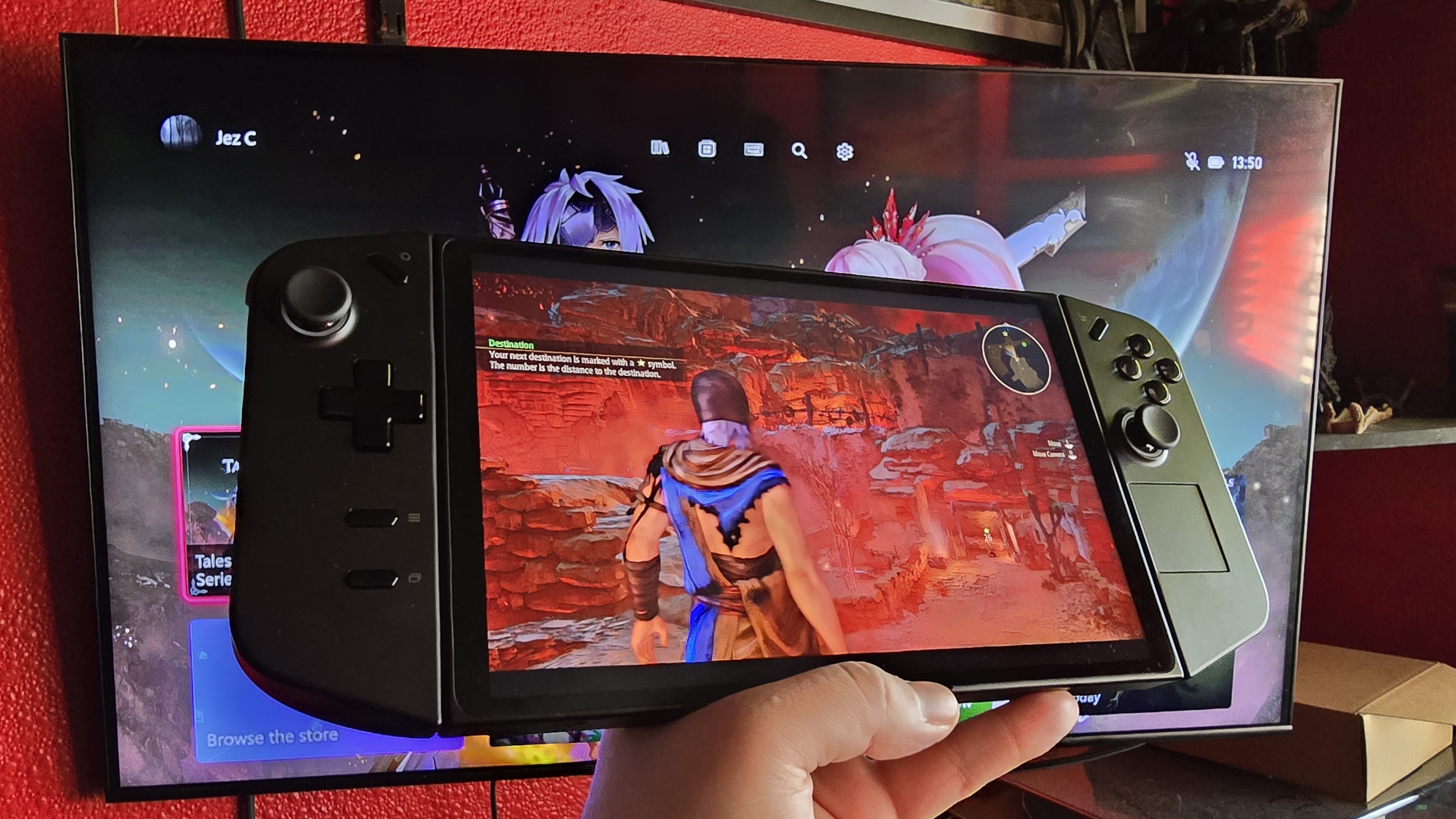The Lenovo Legion Go PC gaming handheld is getting a 'lite' S model, and we now have more details
The Lenovo Legion Go "Lite" is actually the Lenovo Legion Go "S." Here's what we (think) we know.

What you need to know
- The Lenovo Legion Go is a PC gaming handheld powered by the Z1E chipset from AMD.
- It is the largest and most versatile of the big-name PC gaming handhelds, with detachable sticks and a huge 8-inch display.
- Earlier in the year, we exclusively revealed that Lenovo is working on a smaller version, dubbed the Lenovo Legion Go Lite.
- Now, it seems the firm has settled on the name "Lenovo Legion Go S," similar to the Xbox Series S, and a product page on Lenovo's website seems to offer more details ahead of its formal announcement.
PC gaming handhelds are hot hot hot right now, thanks in part to the popularity of the Steam Deck. PC gaming handhelds have gradually become more viable over time, as advances in energy efficiency reduced compromises on power draw. To that end, players like the ASUS ROG Ally and Lenovo Legion Go have become staple gaming options for those looking to take their Steam or Xbox PC Game Pass adventures on the go, and it looks as if another player is about to enter the space.
Earlier in the year, we exclusively revealed that Lenovo is working on a smaller variant of its Lenovo Legion Go, tentatively dubbed the "Lite." Now, we understand that Lenovo has settled on the name "Lenovo Legion Go S," similar to the Xbox Series S, to reflect an overall smaller footprint.
A reddit user (via the fine folks at Videocardz) discovered that Lenovo has updated its product pages early to reflect the fact that there will be two Lenovo Legion Go models, despite not yet providing a full announcement.
- The official Lenovo Legion Go product page FAQ now details the fact that there will be two models, one with an 8-inch display (the Go) and now one with a 7-inch display, indicating that the S model will be physically smaller.
- The page also oddly suggests that the Lenovo Legion Go has a HDMI port, which the current model doesn't have.
- It also says that the Legion Go has dual fans, which again, the current model doesn't yet have.
The fact that the page doesn't seem to distinguish between its models having a HDMI port or dual fans could indicate that a wider product refresh is coming, that could incorporate both a new version of the Lenovo Legion Go and the Legion Go S. ASUS for example just launched the ASUS ROG Ally X, which has boosted RAM and a much bigger battery.
🔥Hottest trending deals🔥
- Lenovo Legion Go (512GB) | was
$699.99now $599.99 at Best Buy - Xbox Game Pass Core 12-months | was
$69.09now $42.19 at CD Keys - Surface Pro Signature Keyboard/Slim Pen 2 | was
$280now $113 at Best Buy
A new Lenovo Legion Go lineup?

Right now, I currently own a Steam Deck, ASUS ROG Ally, and Lenovo Legion Go. I generally find myself preferring the Lenovo Legion Go, owing to its versatility. The fact it has a kickstand, dual USB-C ports, detachable joysticks, and a trackpad, makes it far more viable as an overall solution for PC gaming in my book. I do have an ASUS ROG Ally X on the way, though, and I would be lying if I said I was satisfied with Lenovo's post-launch support. ASUS and Valve have been incredibly diligent in updating their handhelds with a solid cadence of updates and fixes. Lenovo conversely, has not, with its drivers being far behind that of ASUS' model. I also find myself missing the variable refresh rates on the ROG Ally display, even if it has a smaller screen.
RELATED: Lenovo Legion Go vs. ASUS ROG Ally
The fact the Lenovo Legion Go has already updated its product pages based on new models that have yet to be formally announced suggests to me that the firm is already looking ahead to a total refresh of its current roster. I don't really have any details on what a regular Lenovo Legion Go refresh might look like, but I imagine Lenovo would be keen to address some of the criticisms. Perhaps it will look to reduce its bulk and weight, improve its ergonomics, while also boosting its battery life. The Lenovo Legion Go is more expensive than the ROG Ally, its closest competitor. You do get a lot of extra features for that premium, but the overall actual gaming experience is arguably still better on the ASUS ROG Ally, owing to better post-launch support, superior thumb sticks and triggers, and its variable refresh rate display. While I prefer the versatility of the Lenovo Legion Go, I still generally recommend the ASUS ROG Ally to most people.
Get the Windows Central Newsletter
All the latest news, reviews, and guides for Windows and Xbox diehards.
Perhaps that recommendation will change with a refreshed line-up. Time will certainly tell.

Jez Corden is the Executive Editor at Windows Central, focusing primarily on all things Xbox and gaming. Jez is known for breaking exclusive news and analysis as relates to the Microsoft ecosystem while being powered by tea. Follow on Twitter (X) and Threads, and listen to his XB2 Podcast, all about, you guessed it, Xbox!
-
chris9465 Dumb idea. Stop creating 2 different gaming ecosystems.Reply
Somebody hasn’t learned from Microsoft Series S and X debacle. It has pushed Microsoft right out of the console business
